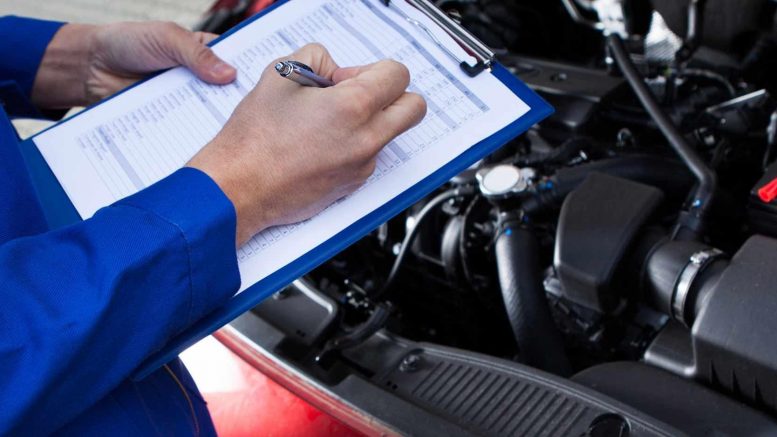Why is Car Maintenance Important?
Being a car owner, it is essential that you carry out frequent maintenance on your car, because if your vehicle is not correctly maintained, it is more likely that it would be prone to grave problems which could make you become out of pocket. Frequent car maintenance, including brake inspections, oil changes, and tune-ups, are wise investments. Regular maintenance is as essential to your car as doctors are to humans. Vehicles that are regularly maintained – even those with the latest technology advancement – are more reliable, last longer, function better, are safer, and get better gas mileage.
Other advantages of regular car maintenance include
- Keeping your car in good condition and saves you from unwanted car problems.
- Increases road safety.
- It reduces fuel expenses and the depreciation value of your car.
Types of Preventive Maintenance for Every Car
Do a Battery Check
You shouldn’t ignore a car’s battery, only because it doesn’t need so much preventive maintenance. You have to know where your battery is so that if on a rare occasion, your lights are still on while on a date at a sophisticated restaurant, you can easily ask your fellow diners for a jump to avoid embarrassment. Ensure your car engine is off before disconnecting or touching the battery when checking your battery for corrosion or leaks or seeing if it needs water.
Check the motor oil
This is a simple task you should always do once a month, or at least each time you fill your car with gas. Polluted and dirty oil is horrible for your car. While you’re under your car’s hood, spot the oil and pull its dipstick out. While you wipe it off, try not to laugh. Put it in and pull it back out of the oil, then check to ensure that the oil level is at the correct oil-level line. You know it’s time to change the oil when it’s below the line or if the oil leaves smudges on your hands and is gritty.
Refill the antifreeze
Despite the weather, climate, or driving conditions, antifreeze ensures the stability of your engine’s temperature. A significant cause of engine failure is a breakdown of the car’s cooling system. It would help if you periodically look at your coolant, and you might want to keep a bottle of antifreeze and a funnel in your trunk. Try not to splash this on you or your clothes. To keep your car’s coolant system functioning correctly, flush the radiator at least once in two years and refill it antifreeze.
Examine tyre pressure
Underinflated tyres consume gas, increase tyre wear and tear and can burst and have you killed. Buy a digital tyre gauge for yourself as a preventive measure and use it to examine your tyre pressure, at least monthly. They are worth about $10. Except your tyres are about to go flat, you won’t be able to tell if it’s underinflated, just by looking at them. You can always have your tyres refilled on your own, by using an air compressor at a nearby filling station, or home.
Rotate your tyres
Take a look at your car’s owner manual for direction on how and when to rotate your tyres. Changing your tyres’ positions enables them to level out the natural wear on all four of the tyres, as the front tyres usually wear out faster than the rear tyres. You can do this by yourself, as long as you have the right tools, or you can pay a mechanic to do it for you.
Align tyres
Frequently rotating your tyres and keeping good tyre pressure enables you to keep your tyres well-aligned, which helps smooth steering and better handling, and also prolongs your car’s lifespan. Aligning your wheels regularly is a waste of money, and is not necessary, but if you’re having problems steering your vehicle, or your tyres are wearing out, find a mechanic who can see if your tyres need an alignment.
Replace the air filter
The air filter in your car helps keep the air that goes through the engine area and into the interior of your car debris-fee and clean. Sand, dust and other tiny particles trapped by the filter could have damaged and slowed down your car’s engine performance. You should change your air filter at least annually, ensuring that while doing so, you clean out the filter’s housing with a vacuum, cleaning solvent and a rag.
What is the Cost of a Routine Car Maintenance Check?
Routine maintenance, according to CAA, can range from $500 to $700 annually, or $42 to $58 monthly. This takes care of things like filter and oil changes, but not including significant repairs. The amount of money you spend on vehicle maintenance is dependent on several things, such as the type of car you have and how you drive it. New vehicles usually need less support than used ones, and most of the work is covered under warranty for the car’s first few years. Similarly, a carpenter who makes use of their truck at work will probably have more maintenance costs than a businessman who only uses his car for commuting.



Be the first to comment on "The Importance of Frequent Car Maintenance"